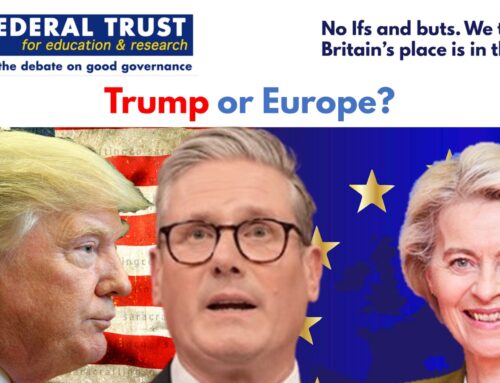by Jaap Hoeksma
Philosopher of law and director of Euroknow
Author of “The Case Bundesverfassungsgericht versus EU Court of Justice – Can the EU function as a democracy without forming a State?”, which can be downloaded for free here: https://www.wolfpublishers.eu/futureofeurope
The EU27 Summit, during which the political leaders of the Union agreed on an impressive Corona Recovery Fund, will be remembered for a variety of reasons. It will certainly be recalled that the four day meeting has been almost torpedoed with the same arguments as those which triggered former PM Cameron to announce his notorious referendum on British membership of the Union. The success of the summit, however, will serve to highlight the effectiveness of the EU and to expose the triple tragedy of Brexit.
National vetoes
When Cameron launched his attack on the EU in his 2013 Bloomberg speech, the Dutch Prime Minister Rutte was the first continental leader to support him. Rutte notably welcomed Cameron’s opposition to the term ‘ever closer union’ as it paved the way to a federal European state. Both politicians agreed that the Union should reform itself into the kind of free trade association, which was envisaged by Margaret Thatcher. The hallmarks of such organisations are national sovereignty and national vetoes. Moreover, organisations of states have no citizens, no common parliament and no single currency, let alone that they would be able to incur common debts. In a free trade organisation as envisaged by Thatcher, Cameron and Rutte something like the Corona Recovery Fund would be both unthinkable and impossible!
The Community method
The characteristics of the Community method consist of shared sovereignty, dual citizenship and a governance system of dual democracy. The political logic of the EU is of a perplexing simplicity. The starting point lies in the realisation that the small states of Europe have to cooperate in order to remain competitive in a globalising world. So, they have started to share sovereignty with a view to attain common goals. It seems obvious that, if two or more democratic states want to share the exercise of sovereignty, they should also develop a mechanism for control of the sovereignty which has been exercised at the transnational level. In other words, they need a common parliament. As you need citizens in order to elect parliaments, the participating states have to create a common citizenship. In turn, EU citizenship forms the basis for the emergence of a democracy at the European level in addition to the democracies of the member states.
A democratic Union of democratic States
In hindsight, it is easy to discern the three stages in the evolution of today’s European democracy. The European Communities, founded in the middle of the 20th century, started with sharing the exercise of sovereignty. In 1973 the participating states, including the UK, described themselves as a ‘Union of democratic States’. Subsequently, the Treaty on European Union, which was concluded in 1992 in the city of Maastricht, introduced EU citizenship, while the 2007 Lisbon Treaty construed the EU as a European democracy. The Lisbon Treaty notably prescribes that both the Member States and the EU have to comply with stringent demands of democracy and the rule of law. In its present stage, the EU may therefore be described as a ‘democratic Union of democratic states’.
The bitter fruits of Brexit
The Conservative stance on national sovereignty, which has convinced the British people to vote for exiting the EU, is becoming more costly by the day. The Johnson government openly admits that Brexit will have financial consequences, but the people suspect that these costs will be considerably higher than the PM and his team pretend. Moreover, the citizens of the UK are afraid of the impact the coronavirus is going to have on their economic situation. The coincidence of these events seems to double their effect. Now, they also have to face the reality that they will not be benefiting from the EU Recovery Fund, which might have helped them with billions of euros. So, Cameron’s gamble is proving to be more irresponsible by the day. The EU summit has taught PM Rutte and his Frugal Four a harsh lesson. Given the proverbial stubbornness of the Dutch, however, it remains to be seen if and when Rutte will realise that he has been betting on the wrong horse.





